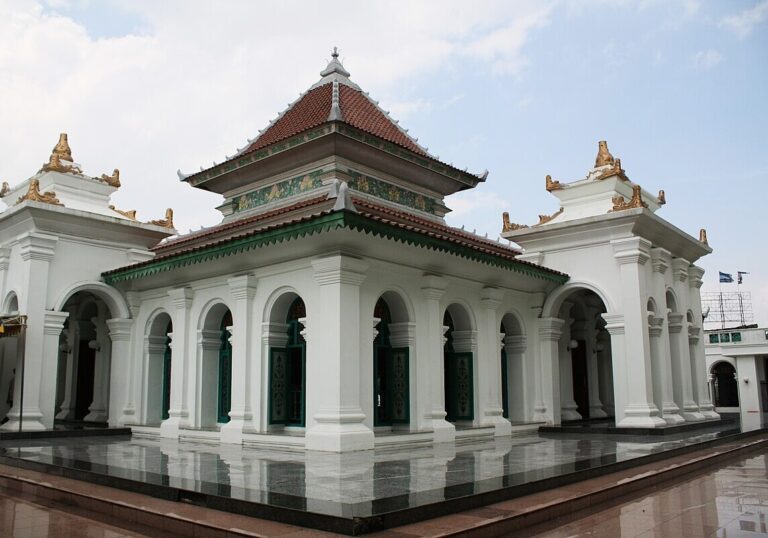According to various sources, hundreds of Muslims protested the construction of a church building on the Indonesian island of Sumatra on October 14, citing the Muslim-majority region.
Protesters in Palembang, the capital of South Sumatra province, also claimed that the land on which the church would be built is government property and that there are no permanent Christian residents in the area.
According to the opposition, the construction of the Protestant Furia Kristen Batak (HKBP) church at No. 15, Block B8, Pangeran Ratu Street in Jakabarin district includes local residents as well as Muslims from Palembang 3 district, including community leaders and officials of the Indonesian Ulema Council (Majelis Ulema Indonesia, MUI). The three sub-districts are Jakabaling, Kertapati and Seberang Ulu I.
According to news agency Disway.id, H. Badaruddin, head of the HKBP church construction rejection movement, said that before the protest, his group held a rally to raise the voices of residents opposed to the construction.
“All the people in that area are Muslims,” Badaruddin was quoted as saying. “It certainly doesn’t matter if Christians live there now.”
Badaruddin also told local television station Pal TV that if the government ignored the opposition, he would hold large-scale demonstrations “demanding a halt to construction.”
Delhi Ibrahim, head of the Seberang Ulu I district branch of the Indonesian Ulema Council, along with three others, said the underlying motivation for refusing construction was that the majority of the population in the area was Muslim.
“I hope that the construction of churches will not be forced on us because the majority of the population is Muslim,” he said. “We, on behalf of the clergy of Jakabalin, Kertapati and Sebran Ulu I districts, oppose the construction of the church.”
However, according to palpres.bacakoran.co, Badaruddin said his party has not yet coordinated the protest with the deputy district chief.
“The deputy district chief is always evasive, as if he’s afraid something will be exposed or something else will be discovered,” he said.
Palembang Mayor Ratu Dewa said he was still waiting for a comprehensive report on the issue and appealed to the community to maintain peace, Pal TV reported.
“I am still waiting for the report because the management process needs to be completed at the grassroots level, both with local communities and the Interfaith Harmony Forum,” Ratu said. “This process has not yet reached the mayoral level. I will look into this matter and discuss it with the regional secretary, assistant public welfare officer and local borough president.”
According to palpres.bacakoran.co, the coordinator of the protest, identified only as Heli, claimed that residents who approved the church’s construction permit had been bribed in goods and money.
“A certain person did this to get residents’ signatures for the construction of the HKBP church,” Heri was quoted as saying. “They were asked to sign without a clear understanding of the matter and would have refused if they had known in advance that it was a requirement for church construction.”
Hyeri said that he personally has no problem with the construction of the church and that if there were Christians living near the site, he would not object.
“We reject it because there are no Christians or (other non-Muslim) residents at the construction site, rather it is 100% Muslim,” he told palpres.bacakoran.co. “And the residents who have been asked to sign these people are temporary residents living on land or in huts. We oppose the construction of this HKBP church because most of the residents in this area are Muslims. We demand that the construction of the church not be forced on us and we categorically refuse.”
HKBP church leaders did not respond to requests for comment.
As of 2021, Palembang has a population of over 1.8 million people in 18 sub-districts. According to the Palembang Central Bureau of Statistics, the three sub-districts that opposed the construction of the church have a combined population of at least 276,046 residents.
constant opposition
According to a political observer who requested anonymity, all church building processes in Indonesia have always faced challenges from Islamic extremist groups.
“Church construction never goes without interruption,” he told Morning Star News. “Of course, there may be legitimate objections, but a joint decree by both ministers opens the door for intolerant groups to raise issues.”
A 2006 joint decree of Indonesia’s Minister of Religious Affairs and Minister of Interior requires churches to provide the names and ID cards of at least 90 members, written approval from the village chief, and letters of support from at least 60 local residents. A written recommendation from the local branch of the Ministry of Religious Affairs and a written recommendation from the local branch of the Forum for Interreligious Harmony is also required.
Bonar Tigor Naipospos, vice president of the Setara Democratic and Peace Institute, said extortion has played a role in several cases against church construction.
“For example, if a church party collects signatures from residents, local mass organizations can ask the church for money or control of the church’s parking lot,” Bonnard told Morning Star News. “Alternatively, there are mass organizations that demand money from churches every month under various pretexts.”
He said the church in Jakarta was going through the permit process with local authorities when a group insisted on supporting the church on a paid basis, but “they still control the church’s parking lot.”
According to Open Doors, Indonesian society has taken on a more conservative Islamic character in recent years, putting evangelistic churches at risk of becoming targets for Islamic extremist groups.
